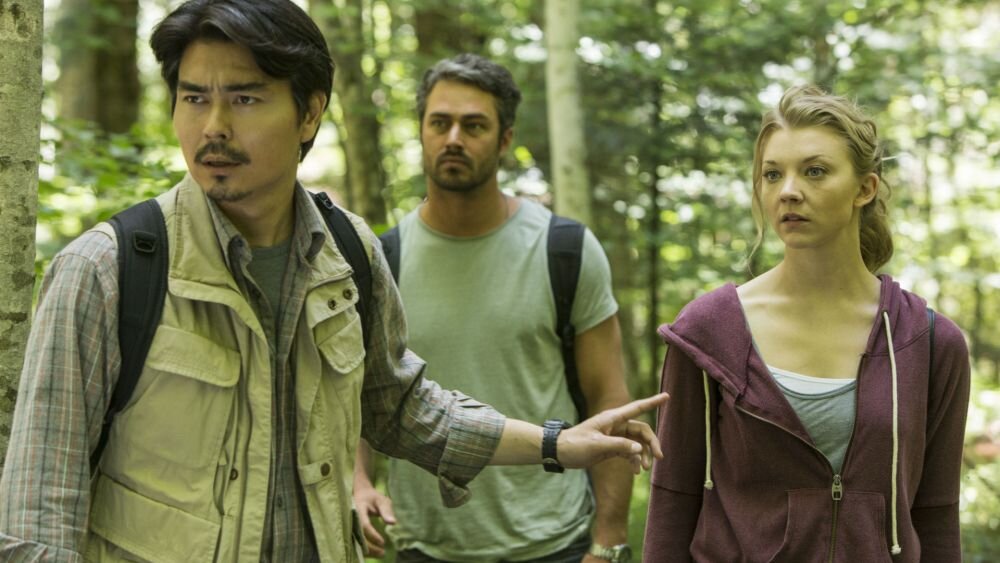The Forest: Turning Cultural Insensitivity into an Artform
I think most people know of The Forest for the same reasons I did. It stars Natalie Dormer of Game of Thrones fame, and it sparked controversy because of its use of Aokigahara Forest, a real place near Mount Fuji in Japan where many people commit suicide every year.
As a non-horror movie watcher anyway, it wasn't even vaguely on my "to watch" radar. But then it showed up on Netflix, and my friend and I couldn't decide what to watch on a lazy Sunday afternoon, and Natalie Dormer was there, and, well. You know. I'll probably watch less than ten movies this year, and now The Forest is one of them.
The Forest is horrifically insensitive. Despite the troubling set-up, there are ways that it could have been at least arguably interesting. If it had been a purely psychological thriller, instead of a supernatural one, with well-developed characters, cultural understanding, and a sensitive approach to suicide, this might have been a decent movie. But by making the threat supernatural, The Forest managed to invoke "Japan is creepy and magical" tropes while also exploiting suicides and throwing aside any psychological insight or message for cheap and lazy scares.
The story is that American Sara has come to Japan in search of her missing twin sister, Jess. Jess has been suicidal before, and after a school trip to Aokigahara Forest, she has disappeared. Sara is determined to find her.
Despite Sara's apparently admirable determination to help her sister, the actual story here is one of a white foreigner who dies because of her cultural insensitivity and her refusal to believe that the people who actually live in an area might know what they're talking about. That kid is just crazy superstitious. And that woman. And the person who works in the park. And that other person who works in the park. And the people saying don't leave the path. And the people saying don't stay in the forest overnight. And, and, and. It's an ever-escalating story of 'are you serious, Sara??' And perhaps there's something in there, just as there might have been something in Sara's relationship with Jess, and the subtle implication (or completely accidental message) that Jess doesn't exist, and this is all a psychological thriller about a girl who disassociated from her experiences after a traumatic event. You know, something at least a little bit interesting. Hints of potential. You get the feeling that maybe a Japanese movie with a psychological bent may have done something worthwhile here.
But the insensitivity on both a cultural and mental health level is off the charts. There is, of course, the innate insensitivity of taking a place where many, many people have died, and still die, and using it as a setting for a supernatural horror movie. The movie uses suicide as a jumpscare multiple times, and although hanging bodies is a staple in horror movies, they carry a slightly different tone when they're connected to real people who really died recently. This problem is exacerbated by the fact that, when Sara Googles the forest, the movie uses real photographs of the bodies of victims. Real deaths, real pain, to set the scene for cheap horror. That's the kind of IMDB "fun fact" that would ruin even an otherwise pretty decent movie.
Then, of course, there's the suggestion that people in the forest only kill themselves because evil spirits trick them into it. Could you have a decent movie where suicidal thoughts are metaphorically represented by dark spirits haunting a person? Sure. But this is not that movie. We're told, from the very beginning, that the forest wants to kill people. It grabs onto sad people and lures them to death. It's even strongly suggested that Jess was lured into the forest by the spirits, rather than her actually intending to be suicidal, despite her apparent past. The movie ends with Sara killing herself accidentally, because the ghosts play tricks on her mind and make her think she's fighting off a demon, when she's really just cutting herself.
The basic premise of The Forest is pretty unsalvageable, on a sensitivity level, but there are ways it could have been better. If they pushed the psychological angle, if they had explored the effect that Sara's traumatic childhood experiences had on her more explicitly, if, if if. If the Japanese characters had more than bit parts. If it was a Japanese movie. If it was set somewhere fictional, for god's sake. If it didn't treat Japan as a foreign land of magic and creepiness.
If you're going to tell a story about a difficult subject, do it right. Try to approach it from a place of sensitivity and understanding. The Forest is cultural appropriation and insensitivity of the worst kind, because it does it lazily, callously, throwing a bunch of elements together without the slightest nod towards the idea that any of it has any connection to real life. It's not that The Forest tried to tell a sensitive story and messed up. It's that The Forest didn't care, and never cared.
I knew we should have watched Spiceworld instead.
